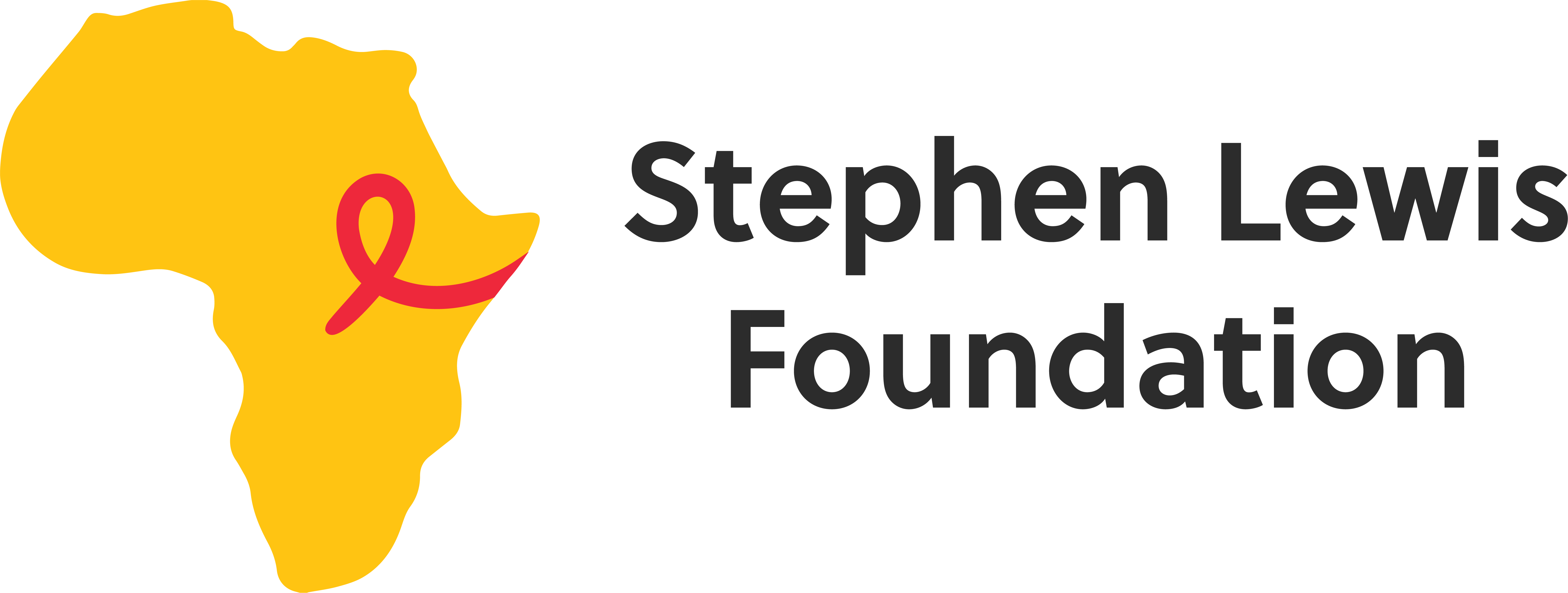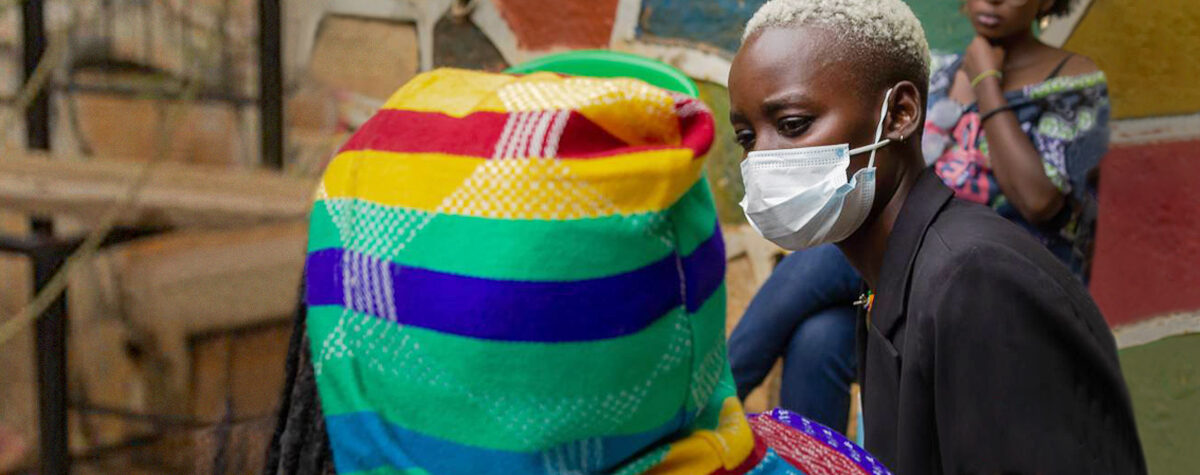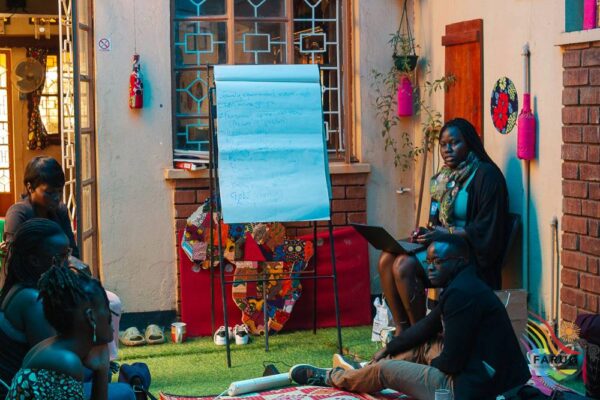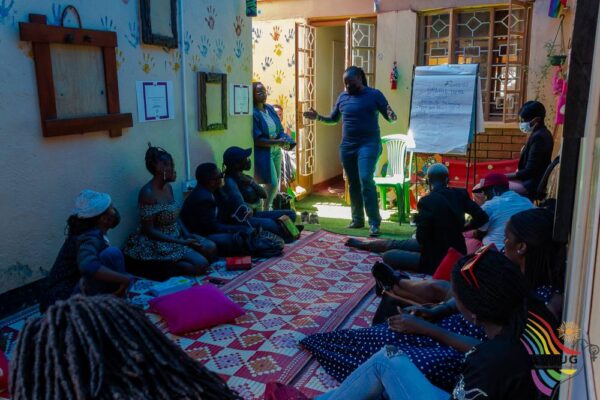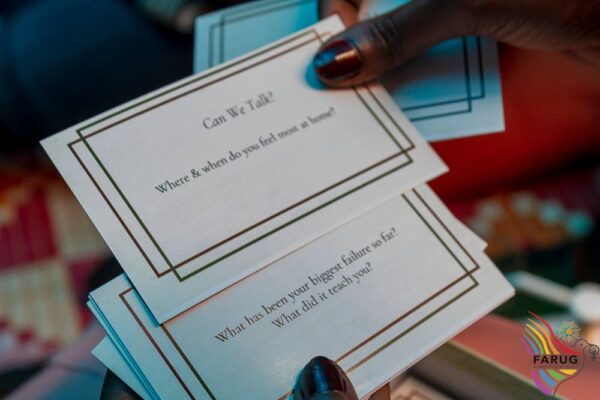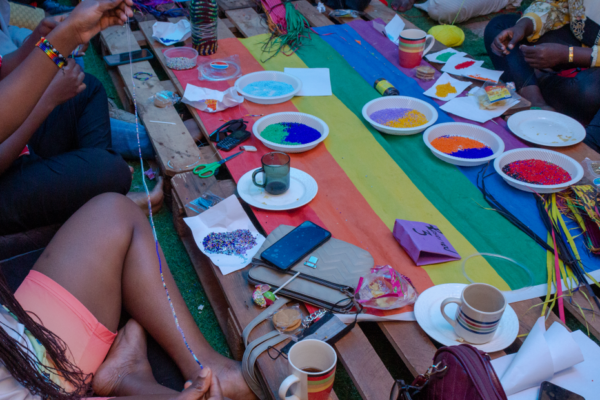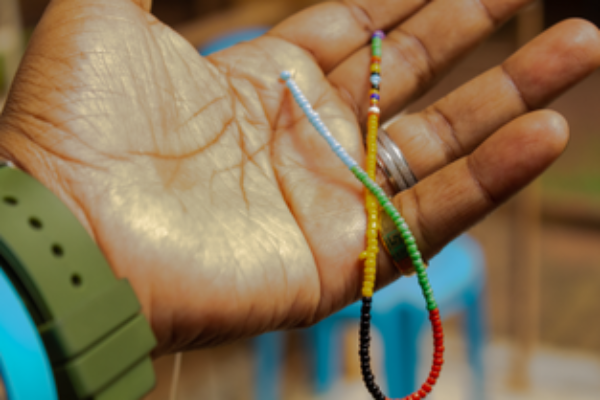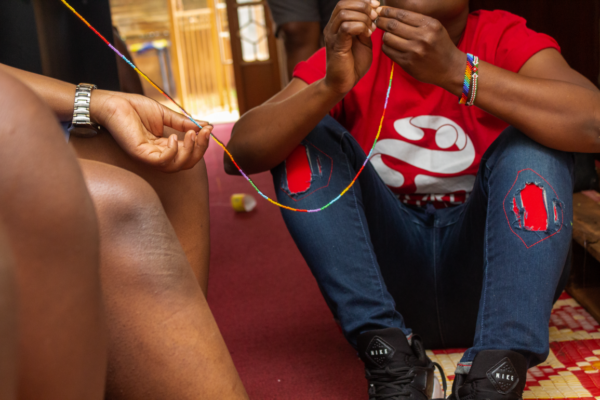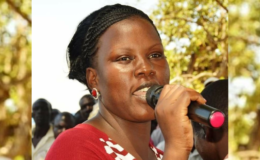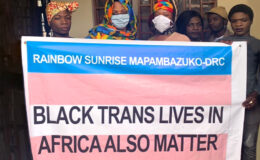Supporting mental health and well-being for frontline LGBTIQ activists
In the face of constant persecution, LGBTIQ leaders in sub-Saharan Africa experience direct and vicarious trauma with little access to meaningful care. Together with support from the Government of Canada’s Act Together for Inclusion Fund, Dignity Network, and Equitas, the SLF is proud to lead The Right to Health and Healing — a project committed to protecting mental health and well-being for staff, volunteers, and communities of six Kenyan and Ugandan organizations. For two years, these organizations will create health and wellness programs that invest in their communities and themselves.
Recently, leaders of three of these organizations spoke to SLF about the mental health challenges they face.
Filling the gaps in health care
In Uganda, LGBTIQ discrimination runs so strong that when SLF partner Icebreakers Uganda (IBU) refers clients to the national psychiatric hospital for services, they are often further stigmatized by homophobic and transphobic health care professionals who lack the knowledge to care for them.
“These mainstream organizations who deal with mental health, they don’t know how to deal with the challenges” faced by LGBTIQ communities, says Brant Luswata, executive director at IBU.
Stress, loneliness, anxiety, depression, and suicidal thoughts can plague IBU clients who encounter such discrimination in everyday life, and the COVID-19 pandemic has only exacerbated their isolation.
For people who are also living with HIV, the risk of untreated mental illness is even greater. “In Uganda, being HIV positive, and then coming from the LGBT community, that is a double stigma,” says Brant.
To fill the gaps, with support through The Right to Health and Healing, IBU is building bridges with public health facilities, and seeking out health care professionals who offer appropriate, safe, and dignified health care.
They are also training peer educators to provide counselling and cognitive behavioral therapy to the community, including in rural areas where access to mental health support for LGBTIQ people is severely limited.
“What of us? What are we doing for ourselves?"
— Brant Luswata, executive director at Icebreakers Uganda (IBU)
And because well-being starts with ourselves, IBU is holding a mental health camp for staff: a place to discuss professional challenges, and normalize conversations about mental health for the people taking care of others.
Well-being is a feminist act for LBQ women in Uganda
“Mental unwellness has been a vice in the community,” says Joanita Warry Ssenfuka (Warry), executive director at Freedom and Roam Uganda (FARUG). FARUG is one of the oldest organizations in Uganda that works with lesbian, queer, and bisexual (LBQ) women. Staff know too well that living as an out queer person in Uganda means encountering constant harassment and discrimination.
Through The Right to Health and Healing, FARUG is training activists and leaders from urban and rural organizations to better understand Uganda’s Mental Health Act, and what it means for LBQ people in a country that criminalizes their lives.
"Well-being is a feminist and political act, and as such we have started to give ourselves permission to take care of ourselves. Take a moment to break, relax and rejuvenate, as a way to mitigate stress, anxiety and burnout that comes from work."
— Joanita Warry Ssenfuka, executive director at Freedom and Roam Uganda (FARUG)
Warry recognizes that while staff often refer clients for support, they also need to support themselves. With that in mind, FARUG has adopted a “collective healing” process for staff, using tools such as rejuvenation circles and wellness journals. “Collectively we care for each other. As the director, as the staff, as the peers, but also as the beneficiaries.”
Watch Luswata Brant, Joanita Warry Ssenfuka, and Phelix Kasanda talk about their work supporting their communities’ mental health, in conversation with SLF Senior Manager of Advocacy Healy Thompson.
Healing after COVID-19 isolation
“I understand what mental health means to me, on behalf of the LGBTI community, as someone who has been living with HIV for several years,” says Phelix Kasanda, a paralegal at Health Options for Young Men on HIV/AIDS & STIs (HOYMAS). Phelix is not only a staff member at HOYMAS, he’s a client who is benefitting from mental health support after experiencing a depression last year.
“We came to realize that mental health is a challenge, and most of us are victims of mental health problems,” Phelix says, reflecting on the ongoing trauma that comes from living without peer support in a homophobic and transphobic society. When a simple trip to the store or clinic can lead to a homophobic encounter, the everyday toll on mental health is high. HOYMAS breaks down stigma by training local police on LGBTIQ rights, a challenging task in a country where the community has no legal protections.
When someone is living with HIV, the connection between mental and physical well-being is even clearer. Clients experiencing mental illness stop coming to HOYMAS’ clinic for anti-retroviral treatment, says Phelix. “We don’t want to see our community members dying because of mental illness. Imagine you being positive and taking drugs at the same time…. You just think that you want to die, but that is not the case.”
"We want to see our people growing. We want to see our people healing."
— Phelix Kasanda, Health Options for Young Men on HIV/AIDS & STIs (HOYMAS)
With support from The Right to Health and Healing, HOYMAS is training staff in counselling, and creating counselling opportunities for themselves. “People are really suffering, going through trauma, in part from their workplaces, in part from their family,” says Phelix, but thanks to an increased understanding of mental wellness, HOYMAS staff share when they’re struggling, without fear of losing their jobs. They have learned to accept the healing process, for their clients, and themselves.
The Right to Health and Healing is supported by the Government of Canada’s Act Together for Inclusion Fund, and is managed by Equitas in partnership with Dignity Network Canada.
